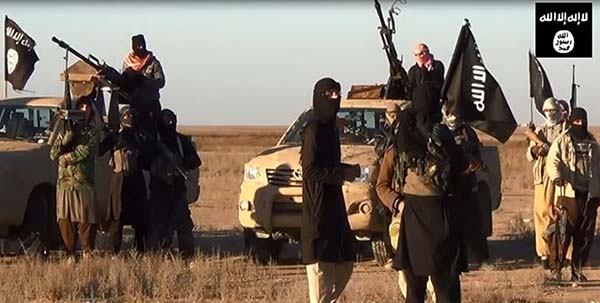Religious fanaticism had triggered bloody wars throughout the history. The war and violence under the aegis of religion and faith wrecked catastrophic havoc on human societies. The great human loss, indescribable cruelty and barbarity and mammoth destructions outraged human conscience to a large extent. Religion and war were juxtaposed within long centuries. As a result, The Thirty Years’ War (1618 – 1648), which involved most countries in Europe, was one of the most destructive conflicts in European history, and it was the worst example of war of religion. The war was fought largely as a religious conflict between Protestants and Catholics in the Holy Roman Empire which lasted, unceasing, for three decades making it the longest continuous war in modern history. Gradually, it developed into a more general conflict involving most of the great powers of Europe.
So great was the devastation brought about by the war that estimates put the reduction of population in the German states at about 25% to 40%. Some regions were affected much more than others. For example, Wurttemberg, an area in south-west Germany, lost three-quarters of its population during the war. In the territory of Brandenburg, an area in northeastern Germany, the losses had amounted to half, while in some areas an estimated two-thirds of the population died. The male population of the German states was reduced by almost half. The population of the Czech lands declined by a third due to war, disease, famine and the expulsion of Protestant Czech. Much of the destruction of civilian lives and property was caused by the cruelty and greed of mercenary soldiers. Villages were especially easy prey to the marauding armies. Those states survived would take almost a century to recover. The Swedish armies alone may have destroyed up to 2,000 castles, 18,000 villages and 1,500 towns in Germany, one-third of all German towns.
History shows that violence and bloodshed on the basis of religious beliefs will only lead to casualties and ravages. Shedding one’s blood for a particular ideology will foment trouble in a community rather than ending the issue. Crusading against one’s religious convictions has shown its ugliest face throughout the history. Historical bloodbath over religious beliefs left heavy casualties behind without a positive change. No doubt, the more a conflict continues the more it will lead to destructions.
During the Reformation and Counter-Reformation of the 16th century, historians saw the Crusades through the prism of their own religious beliefs. Protestants saw them as a manifestation of the evils of the Papacy, while Catholics viewed the movement as a force for good. During the Enlightenment, historians tended to view both the Crusades and the entire Middle Ages as the efforts of barbarian cultures driven by fanaticism. By the 19th century, with the dawning of Romanticism, this harsh view of the crusades and its time period was mitigated somewhat, with later 19th-century crusade scholarship focusing on increasing specialization of study and more detailed works on subjects.
Enlightenment scholars in the 18th century and modern historians in the West have expressed moral outrage at the conduct of the crusaders. In the 1950s, Sir Steven Runciman wrote that “High ideals were besmirched by cruelty and greed ... the Holy War was nothing more than a long act of intolerance in the name of God”.
It seems that the history repeats itself in Islamic world. People suffer from war and violence launched by religious extremists under the aegis of faith and beliefs. The church dogma for crusade has been replaced by Islamic fatwa issued by fundamentalists to launch jihad against their own brethren – who deny joining fundamentalist groups.
The maudlin religionists smolder with religious fanaticism turning their backs on real Islamic law and the sacred texts of Holy Qur’an. The blind indoctrination in the subterranean rooms of Madrasahs has closed the way to rational and analytical discussions for them. The radicals break religious and moral taboos under the appellation of Islam. In another item, their bizarre acts of violence and barbarity are the antithesis of Islamic guidelines. Isn’t stabbing religion in the back?
The Islamic State in Iraq and Syria (ISIS), which has blackened the name of religion, is the outgrowth of extremism. The flagrant violation of religious taboos such as slaughtering and burning alive mankind, dishonoring women forcefully, mutilating, etc. are highly nauseating for one who has an iota of morality and humanity.
Based on historical experiences of human societies, religious wars have left heavy casualties and led to large destructions around the globe. The religious fanatics murdered millions of people with the intention of imposing their beliefs on them. They could remove their bodies, however, failed to cultivate their fundamental beliefs in their minds and hearts. Moreover, they spread Islamophobia around the globe – which is against the soul and teaching of Islam and the Prophet of mercy.
“We often think of peace as the absence of war; that if the powerful countries would reduce their arsenals, we could have peace. But if we look deeply into the weapons, we see our own minds - our prejudices, fears, and ignorance. Even if we transported all the bombs to the moon, the roots of war and the reasons for bombs would still be here, in our hearts and minds, and sooner or later we would make new bombs. Seek to become more aware of what causes anger and separation, and what overcomes them. Root out the violence in your life, and learn to live compassionately and mindfully.”

